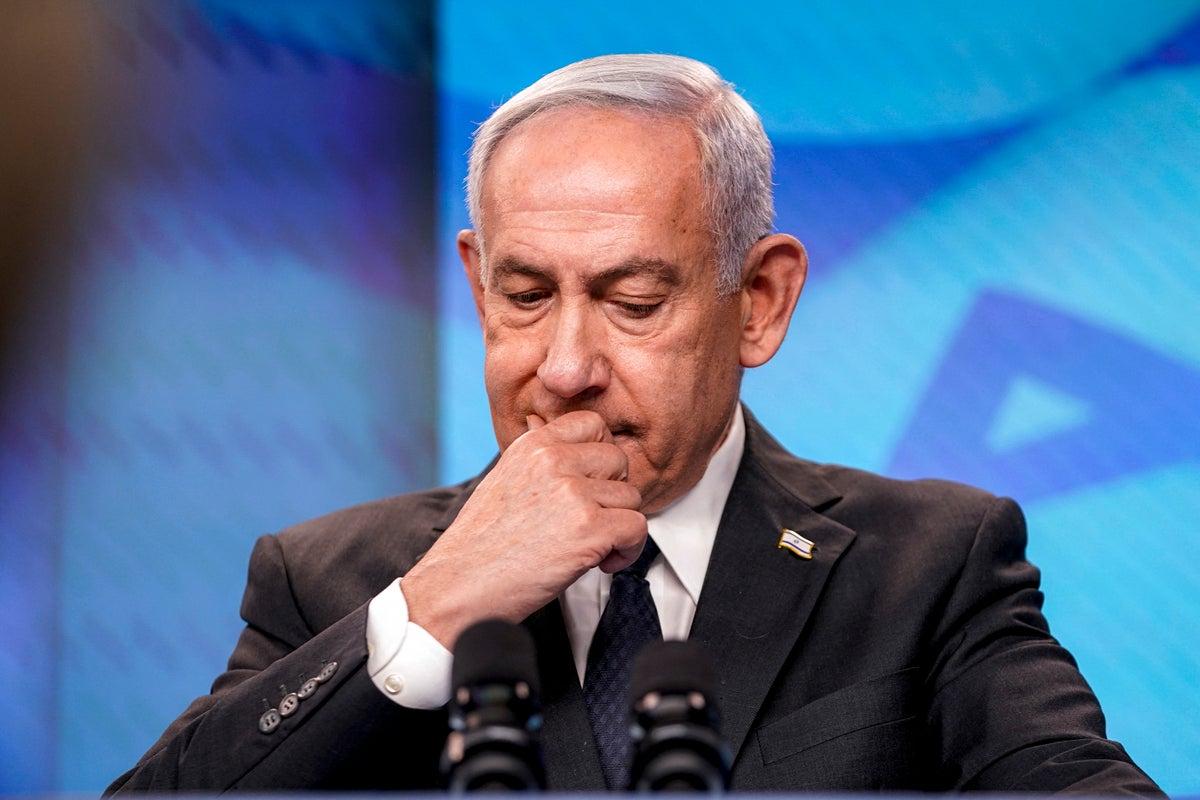A deal for the release of all hostages held by Hamas in exchange for Palestinian captives has been met with celebration in both Israel and Gaza, where it is widely seen as a breakthrough that signals an end to the war.
Israeli prime minister Benjamin Netanyahu has agreed to the initial terms of a deal which promises at least a ceasefire, if not a permanent end to the conflict. But it leaves questions over his political future, which has largely hinged on continuing the war in Gaza.
Analysts have argued that Netanyahu prolonged the war as a tactic to remain in power, given the likelihood that he would lose a future election. Critics also say the war has served as a distraction and delay to the long-running corruption case against him, which Netanyahu has denounced as a witch hunt, consistently and vehemently denying any wrongdoing.
Netanyahu, Israel’s longest-serving leader, faced widespread near-weekly protests in the year before the war began in October 2023 over his controversial plans for judicial reform, and the International Criminal Court has since issued a warrant for his arrest for alleged war crimes committed in Gaza.
“These risks haven’t diminished,” Alon Pinkas, a former Israeli diplomat, told Al Jazeera. “You need to remember, [Donald] Trump is not like [Joe] Biden. Netanyahu can’t rely on all his friends in the Republican Party to try to circumvent the president. That leverage has all gone. If Trump wants to, he’s in a position to make life very difficult for Netanyahu – and Netanyahu knows that.”
Since the beginning of the war, Netanyahu has been determined to achieve his stated goal of total victory over Hamas while appeasing his coalition government, on which his political career depends. But Netanyahu had to counteract that by doing enough not to alienate his Western allies, particularly the US, whose military and diplomatic backing has been crucial for Israel’s war effort.
Netanyahu has, however, faced international condemnation over his conduct of the war, which has been catastrophic for Palestinians. Yet despite the challenges he faces both at home and abroad, he has managed to claw back some points in opinion polls in Israel. According to reports, he maintains a solid core of voters among the ultra-Orthodox Jews and settler populations, and surveys show the Israeli public has generally shifted to the right since the 7 October attacks two years ago.
Critics noted that pre-war demonstrations focused largely on issues affecting Jewish Israelis, while overlooking the ongoing occupation of Palestinian territories. Similarly, the current protests calling for the release of hostages held in Gaza have drawn scrutiny for their limited attention to the humanitarian crisis and suffering faced by Palestinians in Gaza.
Netanyahu’s government is propped up by far-right factions that are not only determined to eliminate Hamas and prolong the conflict in Gaza, but also strongly oppose any moves toward a two-state solution.
“Let’s not assume this is the overall end of war and the overall end of Netanyahu’s war leader mantle,” Daniel Levy, president of the US/Middle East Project and a former peace negotiator who worked with previous Israeli prime ministers, told The Independent.
He suggested that even if the fighting in Gaza ends, the broader conflict is far from over. He highlighted ongoing Israeli strikes in Syria and Lebanon, and pointed to Iran as the next major issue on the horizon. He also warned that Israel is likely to continue military operations, especially in the West Bank, where its actions have become increasingly destructive.
“We may well see the West Bank paying an even bigger price for this,” said Mr Levy, noting that this is partly driven by political pressure from within Netanyahu’s coalition, including hard-right figures such as Itamar Ben Gvir and Bezalel Smotrich.
Mitchell Barak, an Israeli pollster and former political aide to senior Israeli figures, including Netanyahu, said he believed that the government was nearing its end, but he did not expect an immediate collapse given that the opposition supports the peace plan put forward by Trump, according to a report by Reuters.
Israel’s opposition leader, Yair Lapid, offered to lend the government support to prevent it from collapsing in order to see through Trump’s plan. On Sunday, Lapid said Netanyahu could agree to an election date, offering “insurance” from what he called the prime minister’s “extremist and irresponsible partners”.
Mr Levy is sceptical of what the ceasefire deal will mean in reality for the Palestinians, and the crucial question remains of whether Hamas will agree to give up its weapons.
Netanyahu may try to use a potential hostage deal to boost his political standing, framing it as a personal success despite criticism. He could head into Israel’s next elections – which must be held by October 2026 – campaigning as the leader who defeated Hamas and brought the hostages home, Mr Levy suggested. He added that the deal could be presented in such a way as to prove he succeeded without major concessions, such as a full Gaza withdrawal.
“If that doesn’t work, he will say, ‘Look, Hamas isn’t going to disarm. I will have an excuse to go back on to a forward military footing’… the resumption of some military activity which could then escalate in Gaza is a very reasonable scenario,” Mr Levy said.
“The other crucial thing is that the same narrative media consent mechanisms for generating support for a war will still be in place in Israel, including the weakness of the opposition, in terms of offering any robust alternative. So Netanyahu has quite a bit going for him. Maybe he won’t be able to hold a coalition together, but he will try.”

